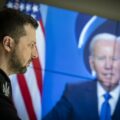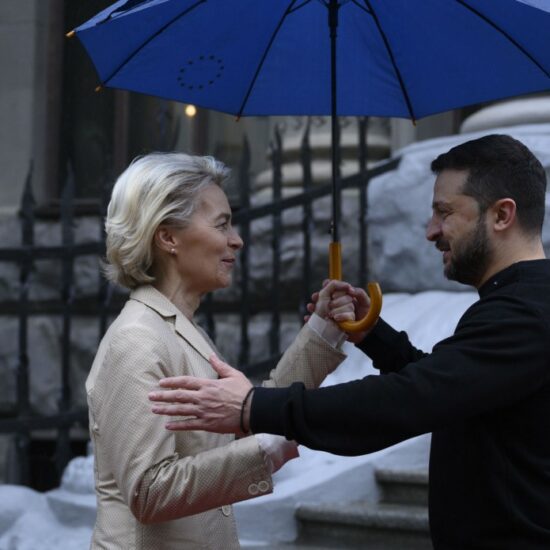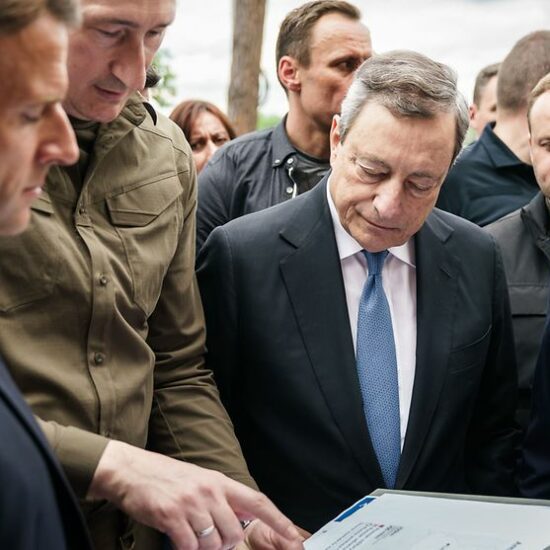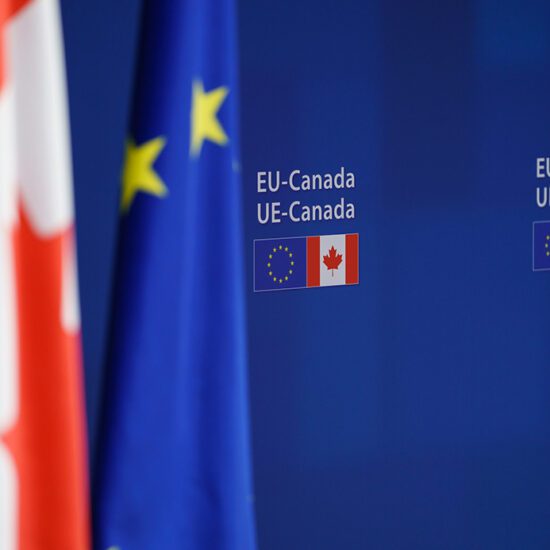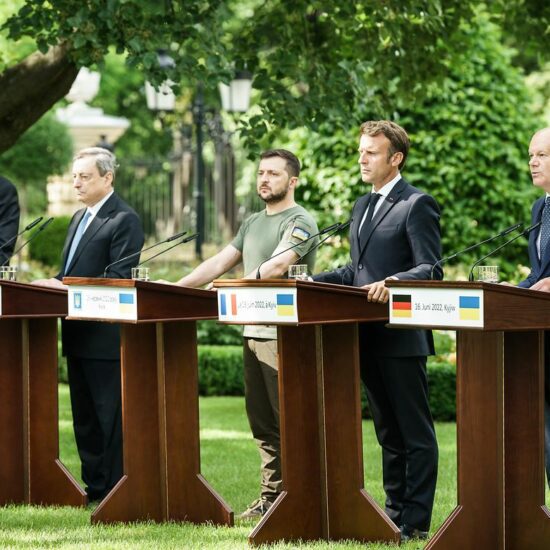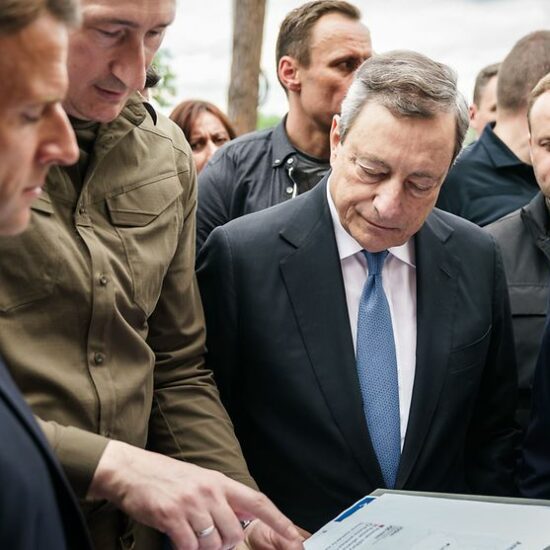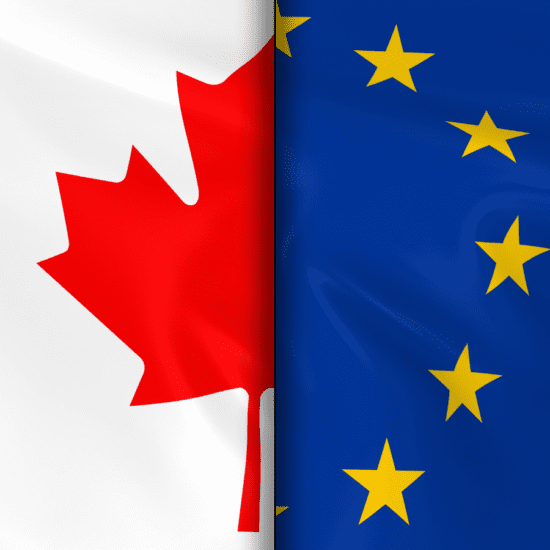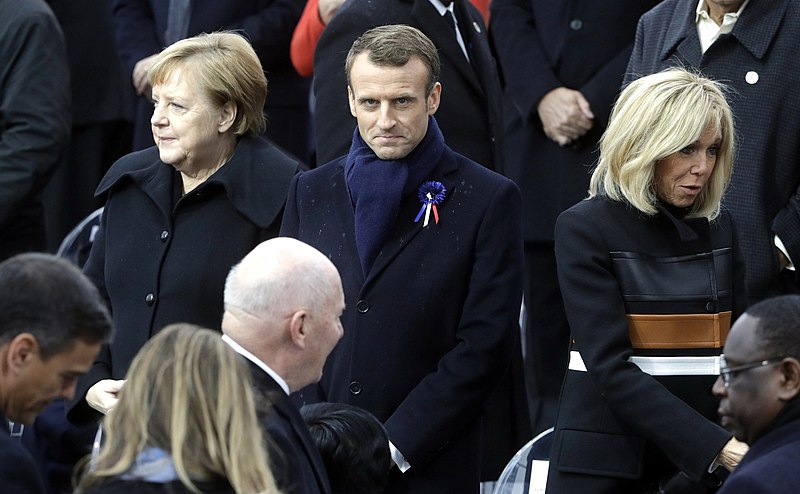
A commemorative ceremony marking the centenary of Armistice Day. Federal Chancellor of Germany Angela Merkel (left) and President of the French Republic Emmanuel Macron and his wife Brigitte Macron. By Kremlin, Moscow, November of 2018
AMID THE PARALYZED POLITICAL CLIMATE IN GERMANY AND THE INACTION ON BREXIT IN THE UK, THE FRENCH FEAR THAT TWO OF THE THREE PILLARS OF EUROPEAN LEADERSHIP ARE CRUMBLING. IN THIS ENVIRONMENT, PRESIDENT MACRON INTENDS TO EMERGE AS EUROPE’S DE FACTO LEADER, SIGNALING TO OTHER EU MEMBER-STATES THAT FRANCE CAN RESOLVE THE BREXIT GRIDLOCK AND MOVE THINGS FORWARD.
By Pouyan Kimiayjan
The political turmoil in Westminster has exasperated a broader power struggle at the heart of the EU. There has emerged a clear rift between France and Germany as the two powers are in disagreement on fundamental issues. During last week’s EU-wide debate over allowing a delay for Brexit, the German Chancellor Angela Merkel signaled a more moderate tone towards the UK and kept it an open option to allow an extension, while French President Emmanuel Macron protested his counterpart, advocating for a hardline approach.
On Brexit, Germany has exercised strategic patience; in fact, the prolonged and uncertain course of Brexit is seen as an opportunity in Berlin. From Germany’s standpoint, the EU can wait for reform and integration, given that the status-quo signals to the EU-sceptics and the nationalists that the EU is still standing strong and united. This strategy has effectively helped slow down the nationalists’ momentum across the union. After all, the fragile state of Brexit has shown to nationalists in the East and the South that a separation from the union can paralyze their respective countries’ domestic affairs, damage their foreign relations, and most importantly, hurt their economic well-being.
On the other hand, President Macron viewed this as a sign of German inaction. Frustrated with the opportunity cost of these negotiations, the French emerged as the ‘bad cop’ in the negotiations. This approach has received a level of sympathy from across the continent. The EU and its member-states have grown tired and frustrated with the current negotiations. In their view, too much time and energy are being spent on the subject. Aware of this environment, France has tapped into this union-wide grievance. Macron intends to finalize the process and move on with his agenda for the EU. In this context, it was no surprise that France went so far as to obstruct a delay and reportedly blocked the EU’s decision to extend the talks for three months.
From a broader perspective, with Angela Merkel approaching the end of her term in 2021, the French fear a consequential leadership vacuum in the EU; a less-active Germany can help embolden the nationalists and postpone much-needed EU-wide reforms. Since his election victory in 2017, Macron has sought to play a leading role in shaping EU foreign policy agendas. Therefore, despite Merkel’s weakened political position in Berlin, France deems it imperative to take control. The French president ultimately wants the EU to assert its sovereignty from the United States, implement economic reforms, and halt the union’s enlargement.
This unilateral approach has spilled into disagreements on other EU foreign policy initiatives, damaging the Franco-German partnership. Without consulting Merkel, Macron tried to broker peace between Iran and the United States and also engaged to mediate tensions between Ukraine and Russia. However, what the French view as German inaction, the Germans see as a prudent foreign policy, during a time of global uncertainty and the fragmentation of the rules-based international order. This is a reminder from Berlin that despite the upcoming change in German leadership, Europe’s strongest economic power will continue to play a leading role in the EU. As a matter of fact, due to the UK’s withdrawal, Germany will have to increase its funding of the EU, further enhancing its decision-making influence in Brussels. Thuswise, France cannot lead alone and has to preserve, rather than damage the Franco-German partnership.
Moreover, France’s aggressive strategy towards the UK risks the likely possibility of a no-deal withdrawal that can be detrimental to both Britain and the European Union. Higher export costs, the uncertain status of EU and UK nationals, the Northern Ireland question, and other consequences of Brexit can fuel the flames of instability in the continent. In addition, this approach can also potentially undermine France’s future relationship with the United Kingdom. The Germans see the UK as an essential player in maintaining stability and peace on the content. Citing history, the Germans note that the United Kingdom, along with the United States, gave substantial political and economic support to West Germany and later facilitated the Franco-German partnership. The Germans see a need for a level-headed policy to bring about a strong future relationship between the UK and the EU while expecting Britain to make the final decision with domestic consensus.
However, despite these risks, the French believe that the United Kingdom’s withdrawal has now become an inevitable reality and the strong triangular relationship that once existed between the UK, Germany, and France cannot be revived again. To survive, the EU needs strong leadership and the French intend to tackle the uncertain realities of this new turbulent world order head-on, regardless of its long-term consequences.

